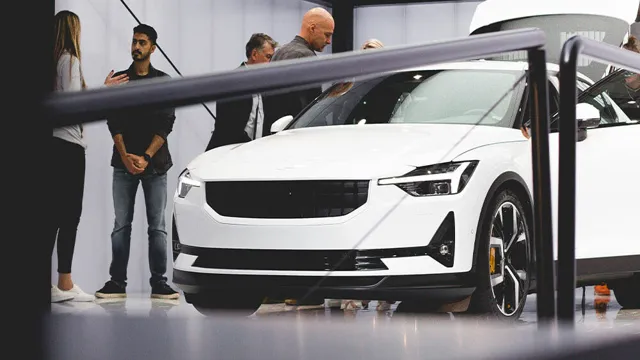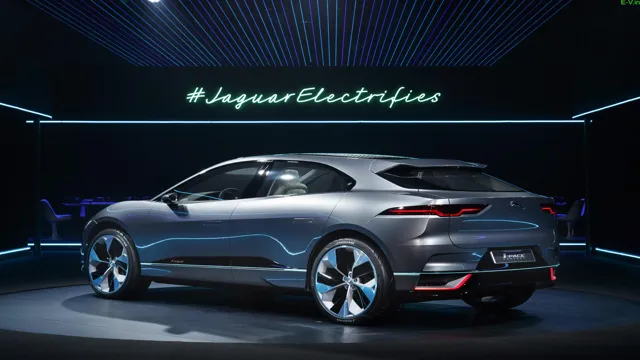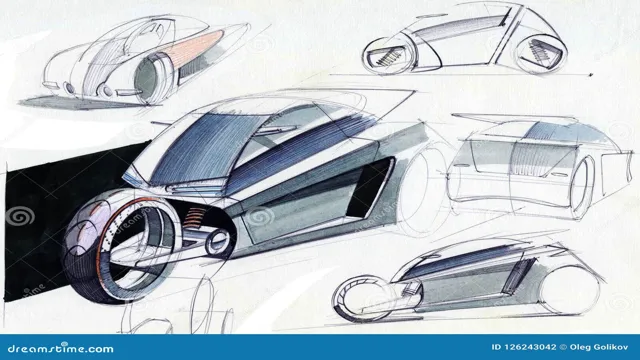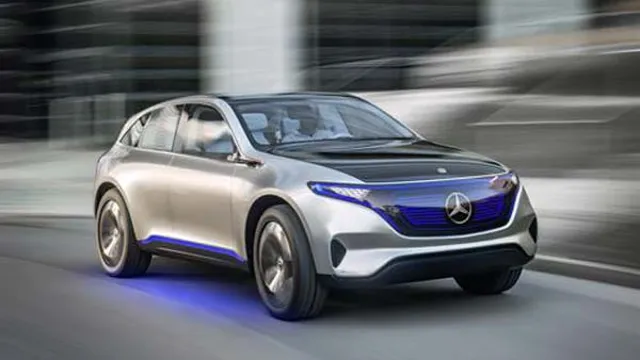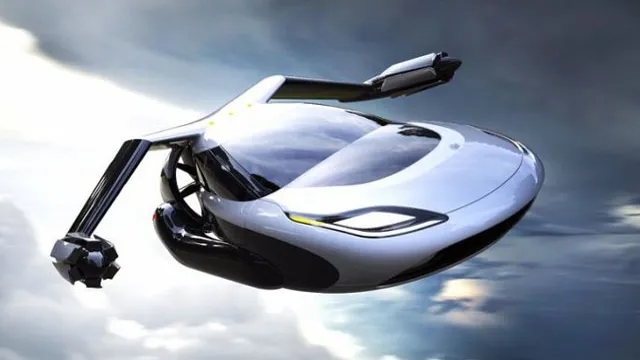Revolutionizing the Roads: A Comparison of Hybrid Technology and Electric Cars
Hybrid Technology vs Electric Cars – the debate that’s been raging for years. While both options offer a significant reduction in emissions compared to traditional gas-powered vehicles, there are some key differences between the two. Hybrid technology combines the use of a gas engine with an electric motor, while electric cars run entirely on battery power.
So, which option is better? It depends on your individual needs and preferences. Hybrid technology may be a good choice if you are looking for a car that offers increased fuel efficiency, but still allows you to use gas when needed. Electric cars, on the other hand, are perfect for those who want to eliminate their carbon footprint entirely and embrace the latest in cutting-edge technology.
Overall, both options have their pros and cons. Determining which one is right for you will depend on a variety of factors, including your budget, driving habits, and environmental concerns. Whatever your choice, one thing is clear – the future of transportation is moving towards increasingly eco-friendly options, and both hybrid technology and electric cars are leading the way.
Hybrid Cars
When it comes to eco-friendly cars, hybrid technology and electric cars are often pitted against each other. Hybrid cars use both a conventional gas engine and an electric motor to power the vehicle, while electric cars solely use electric power. So, which one is better? It ultimately depends on your driving habits and needs.
Electric cars are ideal for shorter commutes and urban areas, while hybrids may be a better choice for longer distances or road trips. Additionally, electric cars require a charging station or outlet to power up, while hybrids can be refueled at any gas station. On the other hand, electric cars offer zero emissions and quieter rides, while hybrids still emit some greenhouse gases.
In the end, it’s important to do your research and determine which option fits your lifestyle and values. Both hybrid and electric cars are making great strides in reducing carbon emissions and promoting sustainability.
Definition of Hybrid Technology
Hybrid technology has taken the automobile industry by storm, and hybrid cars are becoming more and more popular with each passing year. Simply put, a hybrid car is a vehicle that uses both an electric motor and a gasoline engine to power the vehicle. These two power sources work together to provide the car with the necessary power to move.
When the car is running at low speeds or when stopping, the electric motor takes over and uses the energy stored in the battery to power the car. When the car needs more power, such as when driving uphill or overtaking another vehicle, the gasoline engine kicks in to provide extra power. This combination of electric and gas power means that hybrid cars are more fuel-efficient, produce fewer emissions, and are generally more environmentally friendly than traditional gasoline-powered cars.
As we move towards a more sustainable future, hybrid cars are likely to become even more popular, providing a greener and cleaner way to drive.
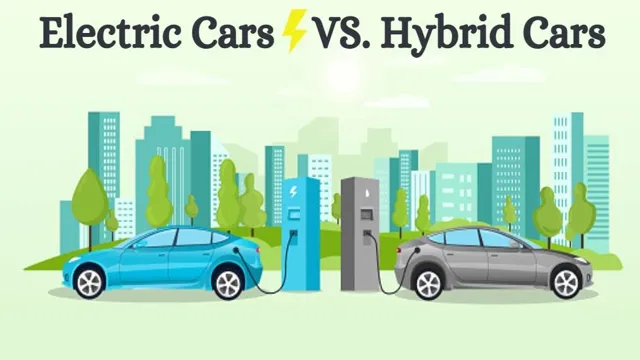
Advantages of Hybrid Cars
Hybrid cars are becoming increasingly popular among environmentally-conscious drivers. These vehicles use both a gasoline engine and an electric motor to power the car, resulting in improved fuel efficiency and reduced greenhouse gas emissions. One of the most significant advantages of owning a hybrid car is the money you save on gas.
You can drive further on a single tank of gas than a traditional gas-powered vehicle, which is an important consideration for those who frequently take long trips. Additionally, hybrid cars have regenerative braking systems which capture energy from braking and store it in the battery, increasing overall efficiency. Overall, owning a hybrid car not only helps the environment but also saves you money in the long run.
Disadvantages of Hybrid Cars
Hybrid cars have been garnering a lot of attention thanks to their decreased environmental impact and improved fuel efficiency. However, as with any new technology, there are some disadvantages to consider before making the jump to hybrid ownership. One of the most significant drawbacks is cost, as hybrid cars tend to be more expensive upfront than their gasoline-only counterparts.
Additionally, maintenance costs can be higher due to the complex systems that make hybrids energy-efficient. Another negative in the minds of many people is the lack of performance, as hybrids often prioritize fuel efficiency at the expense of speed and power. Ultimately, the decision to purchase a hybrid car is a personal one that requires weighing the pros and cons, including the convenience of charging and refueling.
Electric Cars
When considering the choice between hybrid technology and electric cars, it all boils down to personal preference and usage frequency. Hybrid cars are a good option for those who are looking for a more efficient fuel economy without sacrificing convenience. With the combination of a gasoline-powered engine and an electric motor, hybrid cars can provide a good balance between range and fuel efficiency.
On the other hand, electric cars are perfect for people who are looking for a more sustainable and eco-friendly option. They require charging at regular intervals, but with a reliable charging network and improving technology, they can be a very feasible option for daily commutes. Ultimately, it comes down to understanding what your personal needs are and making an informed decision based on those factors.
If you’re someone who needs extensive range and flexibility, then a hybrid car might be the way to go. However, if you’re looking for a greener, more environmentally friendly option, then electric cars are the way to go. Both options have benefits and drawbacks, so it’s essential to research both and figure out what works best for your lifestyle and budget.
Definition of Electric Cars
Electric cars are vehicles powered by electric motors, which run on electricity stored in rechargeable batteries. These cars are designed to be environmentally friendly, producing zero emissions and reducing our reliance on fossil fuels. With the advancement of technology, electric cars have become increasingly popular over the years, as they offer a quieter and smoother driving experience, and are more cost-effective in the long term, as they require less maintenance.
In addition, electric cars are often equipped with features such as regenerative braking, which saves energy by converting kinetic energy to electrical energy that can be stored in the battery. The overall result is a car that is not only good for the planet but also practical and enjoyable to drive. As we move towards a more sustainable future, it is clear that electric cars will play a significant role in reducing our carbon footprint and preserving our environment.
So, next time you’re looking to buy a new car, consider an electric car – not only will you be doing your part for the planet, but you’ll also be choosing a reliable and convenient mode of transportation.
Advantages of Electric Cars
Electric cars have many advantages over traditional gasoline-powered vehicles. Firstly, they are more environmentally friendly as they produce zero emissions and therefore contribute less to air pollution. Electric cars also require less maintenance as they have fewer moving parts and do not require oil changes.
This can save owners money on routine maintenance in the long run. Additionally, electric cars are very quiet when in operation, making for a more peaceful driving experience. Another benefit is that they can be charged at home, eliminating the need to visit gas stations regularly.
While there are some limitations to electric cars, such as limited range and longer charging times, the advantages outweigh the disadvantages for many people looking to make the switch to a more sustainable mode of transportation.
Disadvantages of Electric Cars
Electric cars have become increasingly popular in recent years due to their efficiency and eco-friendliness. However, there are some disadvantages that need to be considered before investing in one. Firstly, the initial cost of an electric car is often higher than that of a traditional car.
This can be a significant financial burden for many people, especially those who are already struggling financially. Secondly, the range of electric cars is often limited, meaning that they cannot travel as far on a single charge as traditional cars can on a tank of gas. This can be inconvenient for those who need to travel long distances on a regular basis.
Finally, there is also the issue of charging infrastructure. While many cities and towns now have charging stations, they are still not as widespread as gas stations, which can make it difficult to find a convenient place to charge your car. Despite these disadvantages, electric cars are a great way to reduce your carbon footprint and do your part for the environment.
Hybrid vs Electric
Hybrid technology and electric cars are two different approaches that auto manufacturers are taking to embrace the future of automobiles. Hybrid vehicles use both an electric motor and a gasoline engine to power the car. This combination allows hybrid cars to get excellent gas mileage, reducing emissions and saving drivers money on fuel costs.
On the other hand, electric cars run solely on electric power, providing zero emissions and lower operating costs than traditional gas-powered vehicles. The downside of electric cars is the need to recharge the battery, which can take some time and limit the vehicle’s range. It’s important to consider your driving habits when choosing between a hybrid and an electric car.
If you’re a city driver or someone who drives short distances, an electric car may be a smart choice. However, if you regularly commute long distances or drive on highways, a hybrid car may be the better choice. Ultimately, both types of vehicles have their advantages and disadvantages, so it’s up to each individual driver to decide which one meets their needs best.
Comparison of Mileage
When it comes to comparing the mileage of a hybrid and an electric car, there are a few factors to consider. Firstly, it’s important to understand that hybrid cars run on both gas and electric power, while electric cars solely rely on electricity. Hybrid cars tend to have a higher mileage than electric cars, as they can still run on gas when their electric battery runs out.
However, electric cars are becoming increasingly more efficient and now have an impressive mileage of their own, with some models boasting up to 300 miles on a single charge. Ultimately, choosing between a hybrid and an electric car will come down to personal preference and individual needs. If you’re looking for a car with a reliable gas option and impressive mileage, a hybrid might be for you.
But if you’re looking for a car with an eco-friendly and cost-efficient option, an electric car might be the better choice.
Comparison of Charging Time
When it comes to charging time, the difference between hybrid and electric vehicles can be significant. Most hybrid vehicles can be fully charged in under 3 hours, while electric vehicles can take anywhere from 30 minutes to 12 hours, depending on the charging station and the battery capacity of the vehicle. This makes hybrid vehicles more practical for those who need to travel longer distances without stopping for a charge.
However, electric vehicles are catching up as charging technology improves and more charging stations become available. It’s important to remember that both types of vehicles have their pros and cons, and it ultimately comes down to personal preference and driving needs.
Conclusion
In the battle of hybrid technology versus electric cars, the ultimate winner depends on individual needs and preferences. While electric cars offer the benefit of zero emissions and the convenience of charging at home, hybrid vehicles provide the best of both worlds by combining electric and gasoline power. Ultimately, it all comes down to what you prioritize more – maximum eco-friendliness or a marriage between the environment and convenience.
So, let’s put our hands together and applaud both options for offering innovative solutions to decreasing emissions and improving sustainability. But, let’s not forget to always keep an eye on new advancements in technology, as the future is bound to bring some electrifying surprises!”
FAQs
What is the difference between hybrid technology and electric cars?
Hybrid technology utilizes both an electric motor and internal combustion engine, while electric cars solely rely on an electric motor powered by a battery.
What are the benefits of owning a hybrid car?
Hybrid cars offer increased fuel efficiency and reduced emissions compared to traditional gasoline-powered cars. They also typically require less maintenance due to regenerative braking systems and the use of lighter materials.
Are electric cars more environmentally friendly than hybrid cars?
While both hybrid and electric cars offer environmental benefits, electric cars produce zero emissions. However, the production and disposal of batteries can have negative environmental impacts.
How do hybrid and electric cars compare in terms of cost?
Electric cars generally have a higher upfront cost than hybrid cars due to the cost of the battery. However, electric cars may have lower long-term costs due to lower maintenance and fuel expenses. Hybrid cars may have a lower overall cost for those who do not have access to charging infrastructure.

